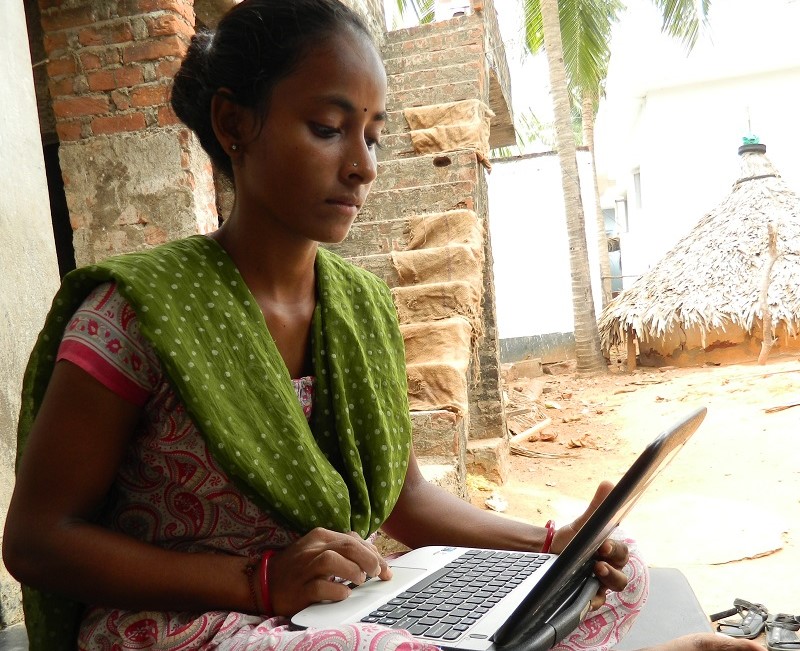Digital Empowerment Foundation in collaboration with USAID and DAI are providing training to women entrepreneurs to ensure financial sustainability and stability under its project Digital Sarthak.
Anoushka Jha

The times are difficult for all of us, someone is losing their life, and someone is losing their job and their only source of livelihood. The common enemy for all of us is the virus-Covid-19. In such times when the present seems difficult and future seems distant and gloomy, it is more difficult for women especially coming from rural backgrounds.
Women have been discriminated on the basis of their identity, their exclusion becomes starker if they come from socially and economically marginalized communities. Moreover, due to their lower social and financial status in family and community at large, they are more prone to marginalization during pandemic. To ensure financial sustainability and stability, there is a need that more women take up entrepreneurial activities. In this context to make some difference, Digital Empowerment Foundation in collaboration with USAID and DAI are providing training to women entrepreneurs.
While normal activities have come to a halt, movements of people are restricted. This is affecting the traditional marketing practices such as buying and selling of products in person, people visiting market, transportation of raw materials, banking activities as well as cash flow in the market. Keeping the limitations that women entrepreneurs have to face in such times, Digital Empowerment Foundation under its project Digital Sarthak is providing training in building capacities on digital literacy, online marketing strategies, online banking and mobile banking as well as their overall digital financial inclusion.
For this purpose, a scoping study was conducted to understand the existing usage and practice of digital tools by women entrepreneurs in their existing enterprises as well to gauge how they currently use mobile and related internet services for their personal and business needs. The insights from the survey revealed that digital literacy among small and micro women entrepreneurs is extremely low. 84% women are not able to operate a computer or a laptop. Although smartphone penetration stood at 54% and internet penetration stood at 57%. This reflects that lower cost of mobile phone has made the device more available and affordable, but this has not improved their accessibility. This points out towards lower digital literacy rate among women entrepreneurs.
Even though women are using smartphone but looking at the usage pattern, most women only use WhatsApp for exchanging messages and using smartphone for entertainment purpose. Which traditionally becomes associated with parameters of digital literacy, that is using mobile only for entertainment. The practice of undertaking financial transactions is again limited for women, and using mobile phone for making online payments is almost absent. They are not familiar with online financial banking or using mobile applications for the purpose of doing online financial transaction. Similarly, women are again dependent on traditional marketing practices of doing business and do not use social media platforms, which they otherwise are familiar with for entertainment purposes.
The survey highlights that while women are able to own their personal mobile phone and are using it mostly for entertainment purpose, their overall digital literacy level remains abysmally low. The reason for this is lower literacy rate, lower social and economic status. It is important for projects like Digital Sarthak to take up the mission of providing women with digital literacy tools so that they are able to secure their position socially and financially especially during the times of Pandemic.
Read full report here.
Anoushka Jha is Research and Advocacy Officer at Digital Empowerment Foundation. When she is not analysing the various intersections between society and the technology, she enjoys sleeping and playing with her house cat.










